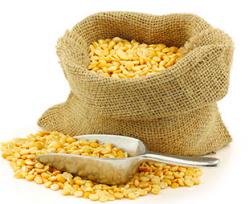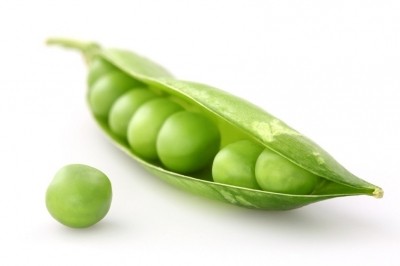With vegetarian forms at a 'crossroads,' A&B Ingredients launches new Pisane pea protein for baking applications

Demand for vegetarian forms of protein is up overall, sail Gil Bakal, managing director of Fairfield, NJ-based A&B Ingredients. A number of factors seem to be driving the trend, he told FoodNavigator-USA.
“There is definitely more and more awareness and more demand to include vegetarian proteins in formulations,” Bakal said. “This appears to be driven by a general consumer trend, but sustainability is a factor.”
Soy was the original vegetarian form and that venerable player has suffered some slings and arrows in recent years to the benefit of newer forms such as pea and rice proteins, Bakal said.
“There is the original allergen issue. Soy has suffered some negative publicity over the last few years. And the questions of GMOs plays a role,” he said.
The challenge of China
The protein picture seems to be one in which branded protein forms are grafted onto what is essentially a commodity market. And when it comes solely to delivering ingredients at a certain cost point, it’s hard to compete with the Chinese, Bakal said.
“The challenge is when Chinese ingredients come into the market at a price point that to the rest of the world doesn’t make any sense,” Bakal said. “But there have been problems with Chinese ingredients. Everyone remembers the melamine scandal. You can have some success in presenting your product simply as ‘not Chinese.’
The branding of a protein ingredient can only go so far, Bakal said. The inclusion amounts needed mean the market will always be one that is sensitive to price.
“I think you can have a branded ingredient to an extent. You can make a high quality product and link your brand to that level of quality. But you can only differentiate so far. I don’t think you can have an ‘Intel Inside’ kind of brand,” he said.
New forms at a crossroads
Now that pea protein has achieved a certain level of acceptance, it’s time to step up to the plate in terms of functionality, Bakal said. The new form of Pisane, which is produced by Belgian company Cosucra, delivers on the functionality promise, he said.
“I think we are at a bit of a crossroads with pea and some of these other vegetarian proteins. There was a real surge in demand by the aficionados, the early adopters. Now it’s kind of at a make-or-break phase. Pea protein is still a niche product right now but I think a lot of people believe in it because its functionality is similar to soy but without some of soy’s issues,” Bakal said.
“It is sort of shaking itself out now trying to find a balance between price and application of specific proteins. At first it was one pea protein and everybody had the same thing. Now there are differences in terms of taste and soluability,” he said.
“The traditional form of Pisane that we offered has always been targeted toward the beverage market. In terms of soluability, taste, color and foaming properties it had all of the things that were important for that application.
“But the traditional form has some limitations in certain applications. Because it bound so much water it would dry out the products and make them hard over time. Pisane B9 has a very low water absorption and allows for shorter baking times and softer textures even in things like extruded pieces,” Bakal said.













